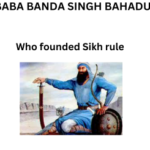Centre Asks States Not To File Cases Under Scrapped Section 66A of the Information Technology Act

Cases cannot be registered under the defunct Section 66A of the Information Technology Act, the Centre told states and Union Territories. The police should be asked to stop filing such cases and any case under the scrapped law should be immediately withdrawn, the home ministry said in an order.
LEARNING FROM HOME/ WITHOUT CLASSES/BASICS
The Supreme Court has struck down the provision in the cyber law which provides police power to arrest a person for posting “offensive” content online and provides for a three-year jail term. The bench, however, did not strike down two other provisions – sections 69A and 79 of the IT act – and said that they can remain enforced with certain restrictions.
Section 69A provides power to issue directions to block public access of any information through any computer resource and 79 provides for exemption from liability of intermediary in certain cases.
Section 66A— a controversial law that allowed the police to arrest people for posting “offensive” content online — was scrapped by the Supreme Court in a landmark judgment of March 2015. Section 66A of the Information Technology Act is unconstitutional in its entirety; is arbitrarily, excessively and disproportionately invades the right of free speech and upsets the balance between such right and the reasonable restrictions that may be imposed on such right,”
The court said the liberty of thought and expression was a cardinal value of paramount significance under the Constitution.
The right to freedom of expression is declared ,as articulated under Article 19 under Indian Constitution, as Human Right in the Universal Declaration of Human Right as well as in International Covenant on Civil and Political Rights which states that “everyone shall have the right to hold opinions without interference” and “everyone shall have the right to freedom of expressions; this right shall include freedom to seek, receive and impart information’s and ideas of all kinds, regardless of frontiers, either orally, in writing or in print, in the form of art, or through any other media of his choice”.
Article 19 (1)(a) of Indian Constitution provides for freedom of speech and expression as fundamental right. Article19(2) provides for reasonable restriction and contempt of court is expressly mentioned as reasonable restriction in our constitution.
Both freedom of speech and power of contempt is vital for a democratic setup. Freedom of speech ensures judicial accountability whereas power of contempt ensures fair administration of justice.

9




0 Comments